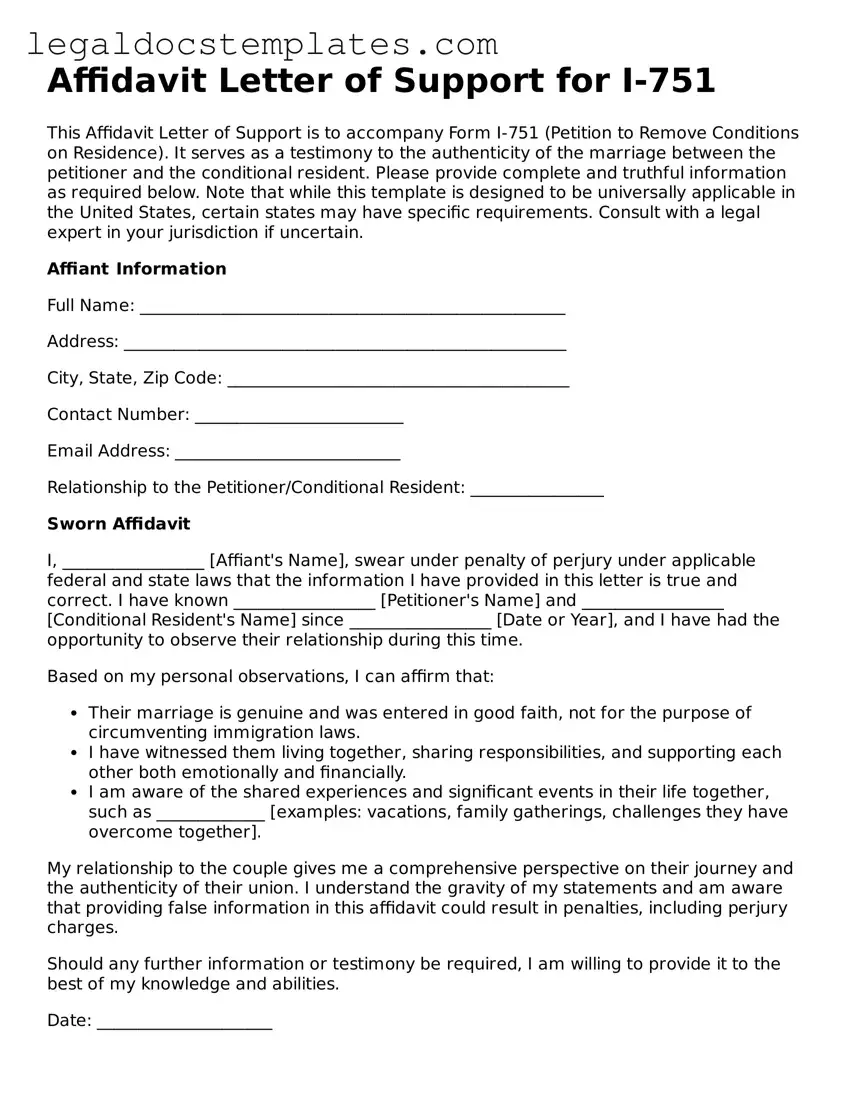Affidavit Letter of Support for I-751
This Affidavit Letter of Support is to accompany Form I-751 (Petition to Remove Conditions on Residence). It serves as a testimony to the authenticity of the marriage between the petitioner and the conditional resident. Please provide complete and truthful information as required below. Note that while this template is designed to be universally applicable in the United States, certain states may have specific requirements. Consult with a legal expert in your jurisdiction if uncertain.
Affiant Information
Full Name: ___________________________________________________
Address: _____________________________________________________
City, State, Zip Code: _________________________________________
Contact Number: _________________________
Email Address: ___________________________
Relationship to the Petitioner/Conditional Resident: ________________
Sworn Affidavit
I, _________________ [Affiant's Name], swear under penalty of perjury under applicable federal and state laws that the information I have provided in this letter is true and correct. I have known _________________ [Petitioner's Name] and _________________ [Conditional Resident's Name] since _________________ [Date or Year], and I have had the opportunity to observe their relationship during this time.
Based on my personal observations, I can affirm that:
- Their marriage is genuine and was entered in good faith, not for the purpose of circumventing immigration laws.
- I have witnessed them living together, sharing responsibilities, and supporting each other both emotionally and financially.
- I am aware of the shared experiences and significant events in their life together, such as _____________ [examples: vacations, family gatherings, challenges they have overcome together].
My relationship to the couple gives me a comprehensive perspective on their journey and the authenticity of their union. I understand the gravity of my statements and am aware that providing false information in this affidavit could result in penalties, including perjury charges.
Should any further information or testimony be required, I am willing to provide it to the best of my knowledge and abilities.
Date: _____________________
Signature: _____________________
Notary Public (if required):
State of ________________________________
County of _______________________________
On this ___ day of ___________, 20___, before me, a Notary Public, personally appeared ____________________________, known to me (or satisfactorily proven) to be the person whose name is subscribed to the within instrument and acknowledged that they executed the same for the purposes therein contained.
In witness whereof, I hereunto set my hand and official seal.
Date: _____________________
Signature of Notary Public: _____________________
Seal:

